
Generation Z adults – a cohort born between 1997 and 2005 – are known for characteristics such as their ambition to do well financially, their digital and social media savvy, and their drive to help others. Simultaneously, many have struggled with mental health issues, loneliness, and lack of resilience. All of this holds true in a study of 4,000 U.S. adults, conducted by Morning Consult and commissioned by The Cigna Group in June 2023.
The study findings, released in the 2023 Vitality in America report, are consistent with the 2022 report in many ways. Gen Z adults continue to report feelings of loneliness, low levels of resilience, and the lowest levels of vitality of all age groups. They also report feeling disconnected from their family and friends.
The good news is that Gen Z adults are gaining ground in several dimensions of health and well-being while other generations show stagnation or decline. The data suggests that Gen Z would be well served by opportunities to make meaningful contributions and strengthen social connections at work and in their communities. In fact, Gen Z adults who experience higher levels of vitality are significantly more likely to volunteer, to feel a sense of purpose, and to connect strongly with others.
Let’s look at some additional insights included in the 2023 Vitality in America report.
1. Mental health challenges play a considerable role in the lower vitality Gen Z experiences
Gen Z adults are significantly less likely to rate their own mental health as excellent/good than older generations (33% vs. 48% on average for all other adults). They also report lower personal confidence and self-esteem, dissatisfaction with their personal and professional lives, and lower overall quality of life than all other generations.
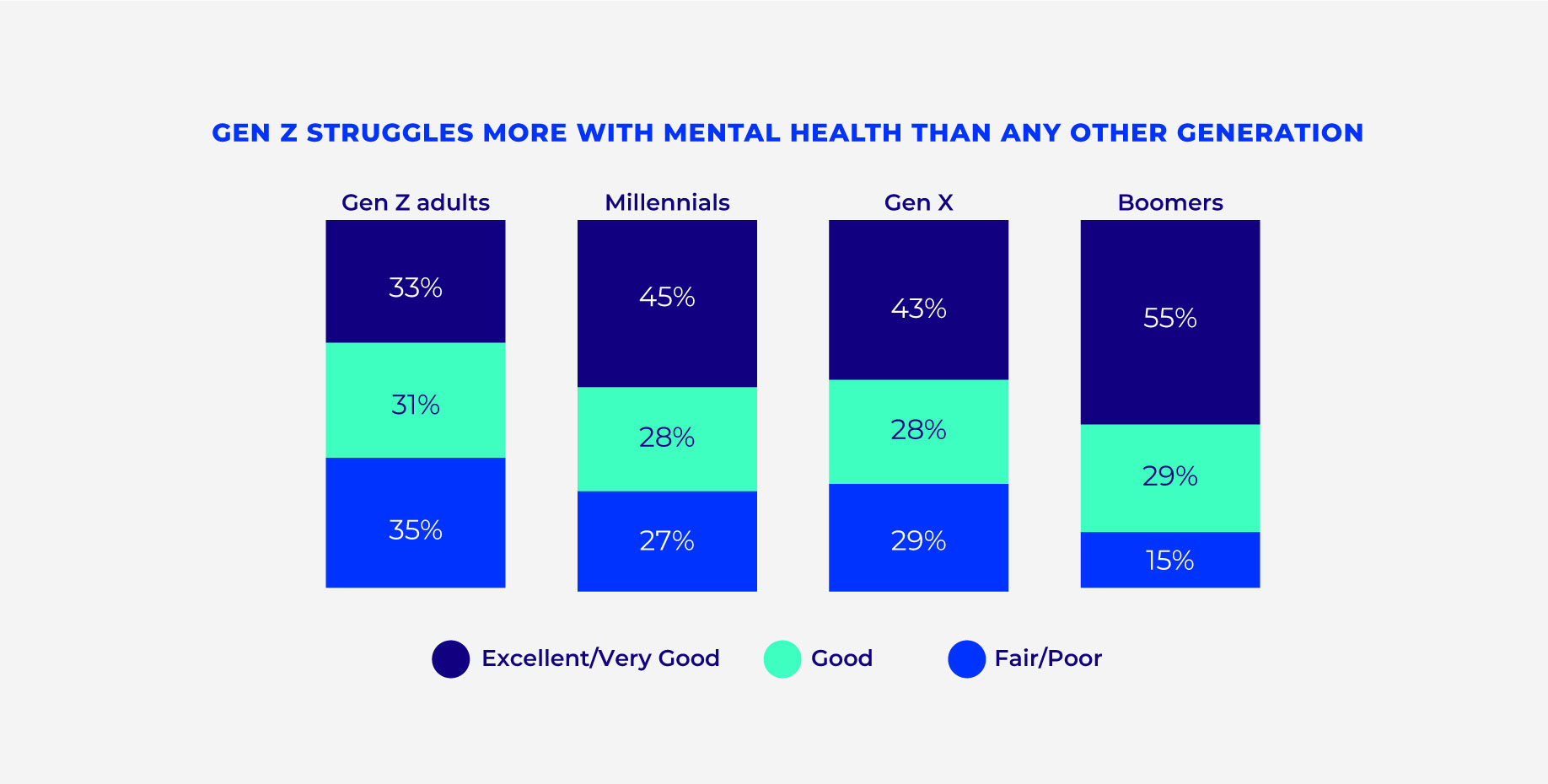
2. Financial stress negatively affects Gen Z vitality levels
Financial stress is higher for Gen Z adults than stress related to relationships, work or school, housing, or their health. They also report feeling more stressed about all of these areas than other generations do. Many feel they don't earn enough and express concern over the high cost of living, inflation, living wages, and other factors that contribute to their financial insecurity.
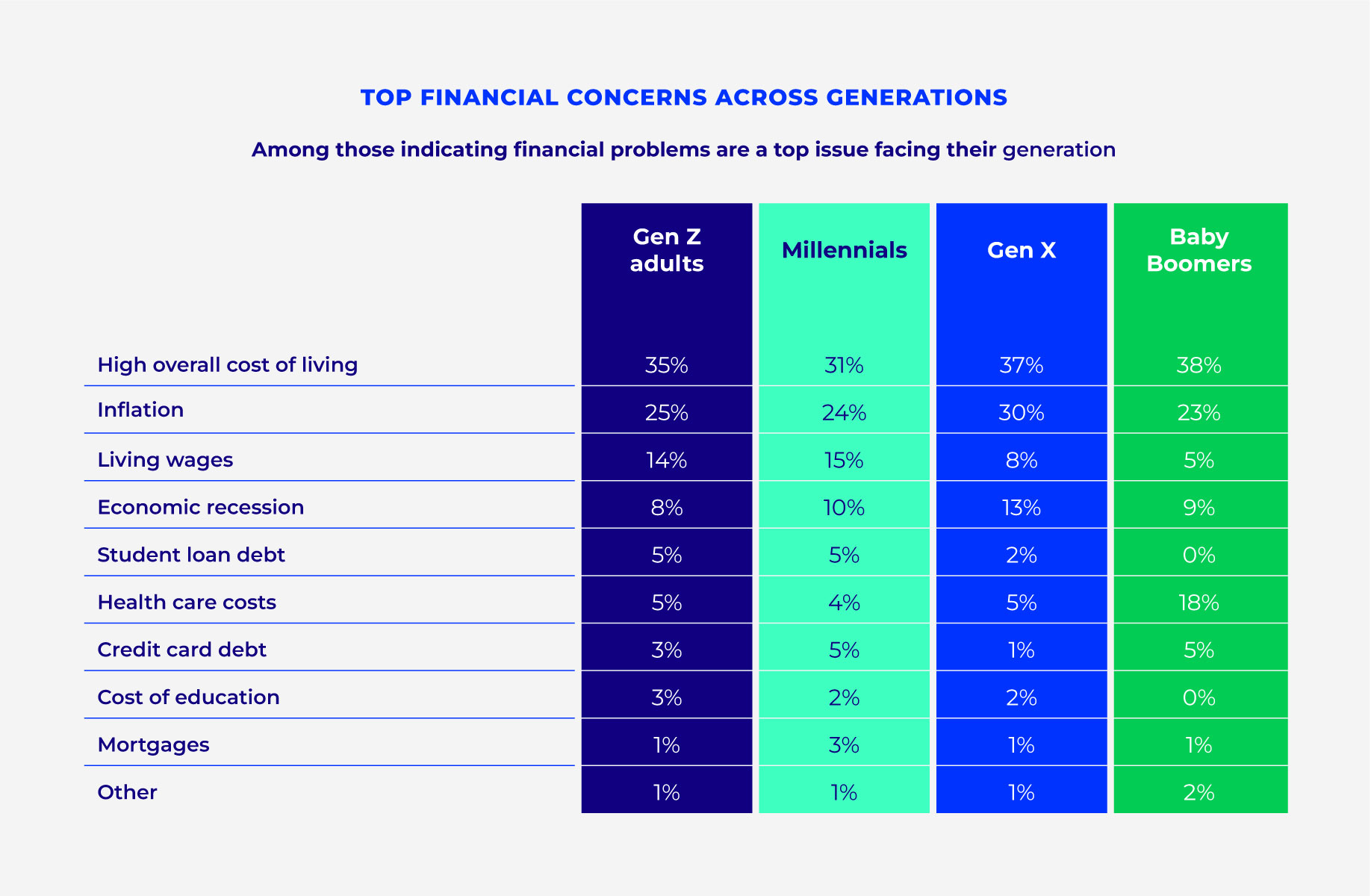
3. Gen Z feels more optimistic about their personal direction than the direction of society
Gen Z adults feel the opportunities available to them are extremely/very promising (44%), which is higher than the 26% of Gen Z adults who are optimistic about the direction of society in general. In addition, 40% reported feeling in control of their future.
There are gaps in optimism between Gen Z of different races and ethnicities, with white Gen Z adults feeling the least optimistic about the direction of society at large, followed by Hispanics and Blacks, respectively.
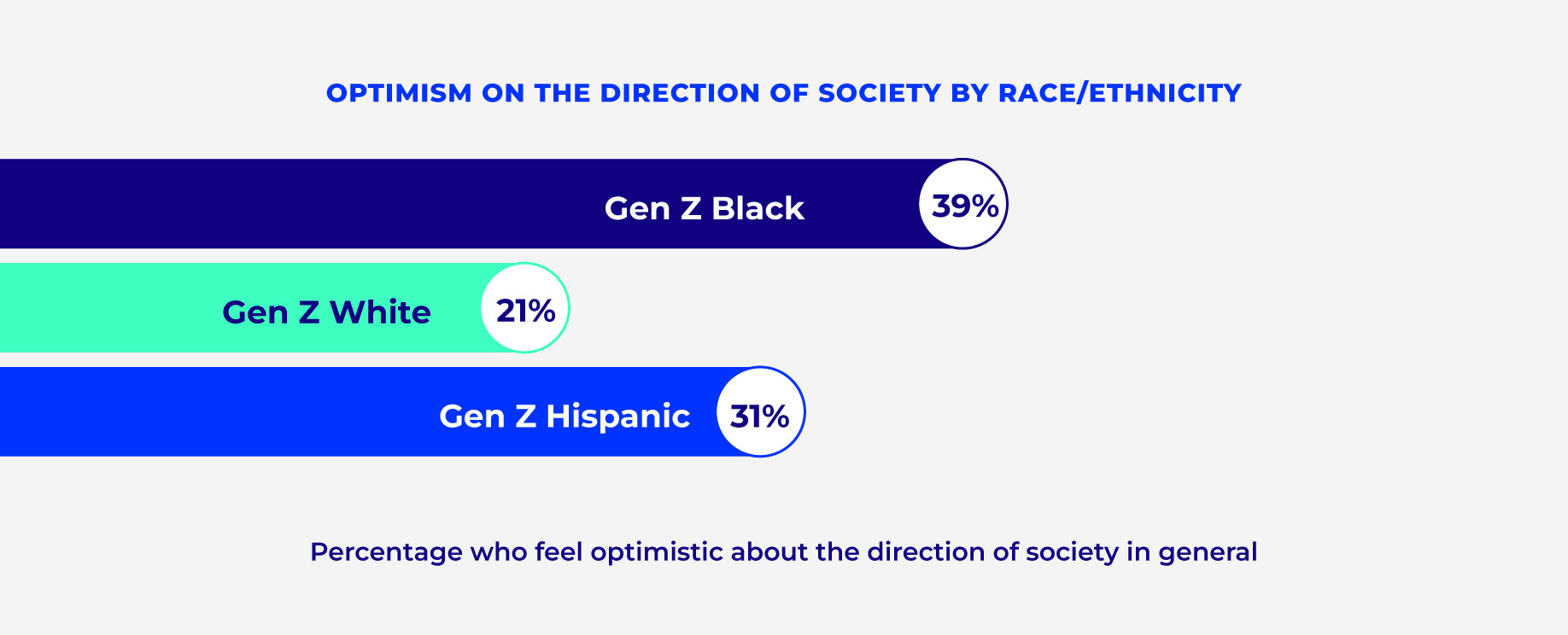
4. Gen Z is generally underwhelmed by their workplace experience
Gen Z adults are the newest members of the workforce and struggle to find enthusiasm for work. While many are satisfied with their current jobs, they are less satisfied with their salaries, benefits, or chances for advancement. They are also less likely than older generations to find a sense of purpose in the work they do. As a result, many feel less capable and less confident in their ability to get their work done.
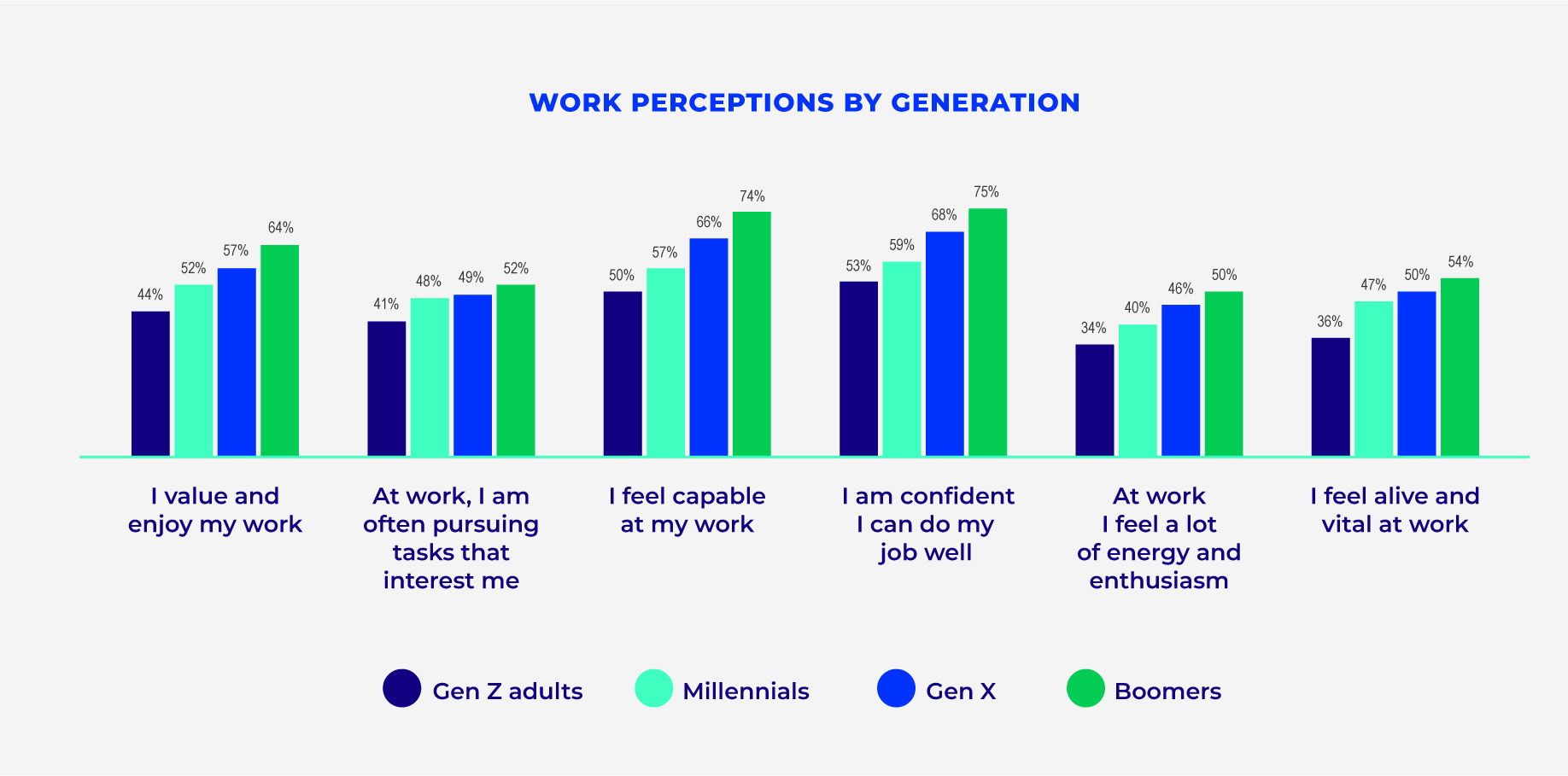
5. Gen Z's social media utilization is higher than any other demographic – which they don’t see as all bad
As expected, the study shows nearly all Gen Z adults use some form of social media daily (96%) and are significantly more likely to use multiple social media platforms throughout the day compared to other generations.
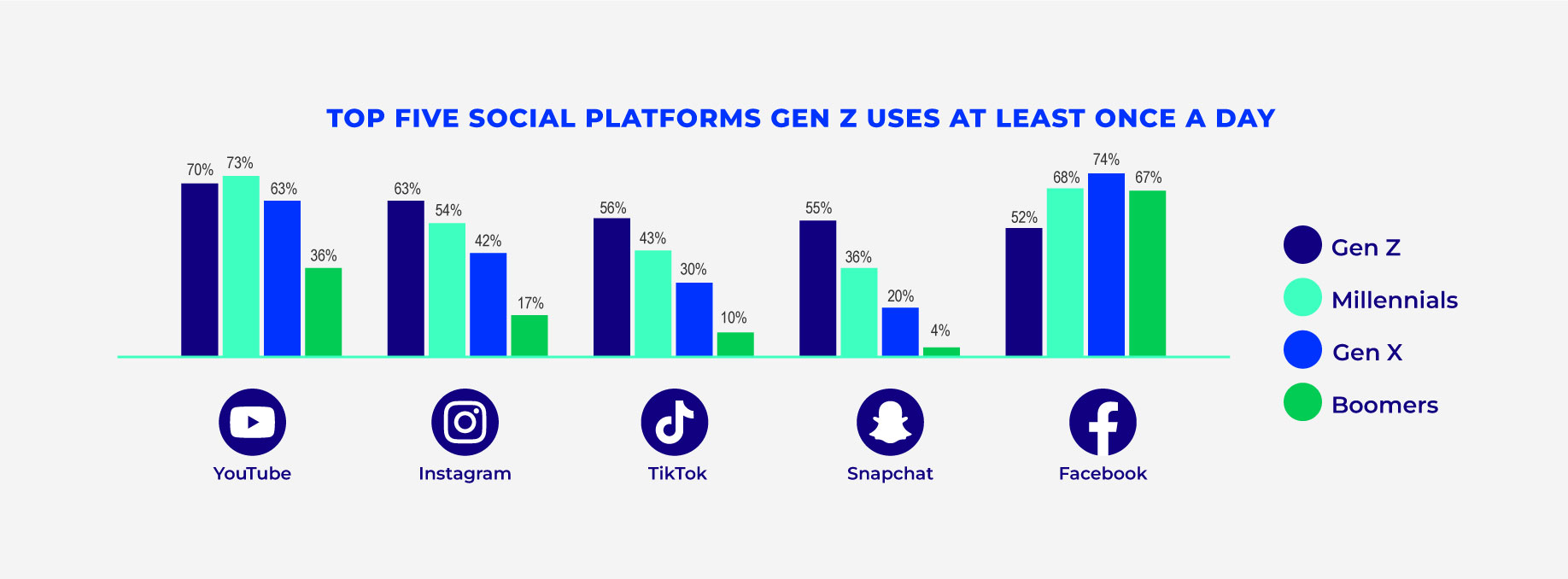
Gen Z are more likely than older generations to feel social media has helped them to discover new ideas, learn new skills, find new hobbies, and find communities with similar interests. Simultaneously, they are also more likely to admit that social media use has resulted in issues with their self-esteem/self-image, difficulty focusing on reality, being bullied, and experiencing negative comparisons to peers. More than one in five (21%) say they have lost or damaged personal relationships with friends, family, or loved ones because of social media.

The state of vitality among Gen Z adults in the U.S.
We surveyed 4,000 adults to better understand the vitality of Generation Z adults – the cohort born between 1997 and 2005.